Review: A STREETCAR NAMED DESIRE Examines Sultry Sexual Tension and Scandalous Behavior in 1947 New Orleans
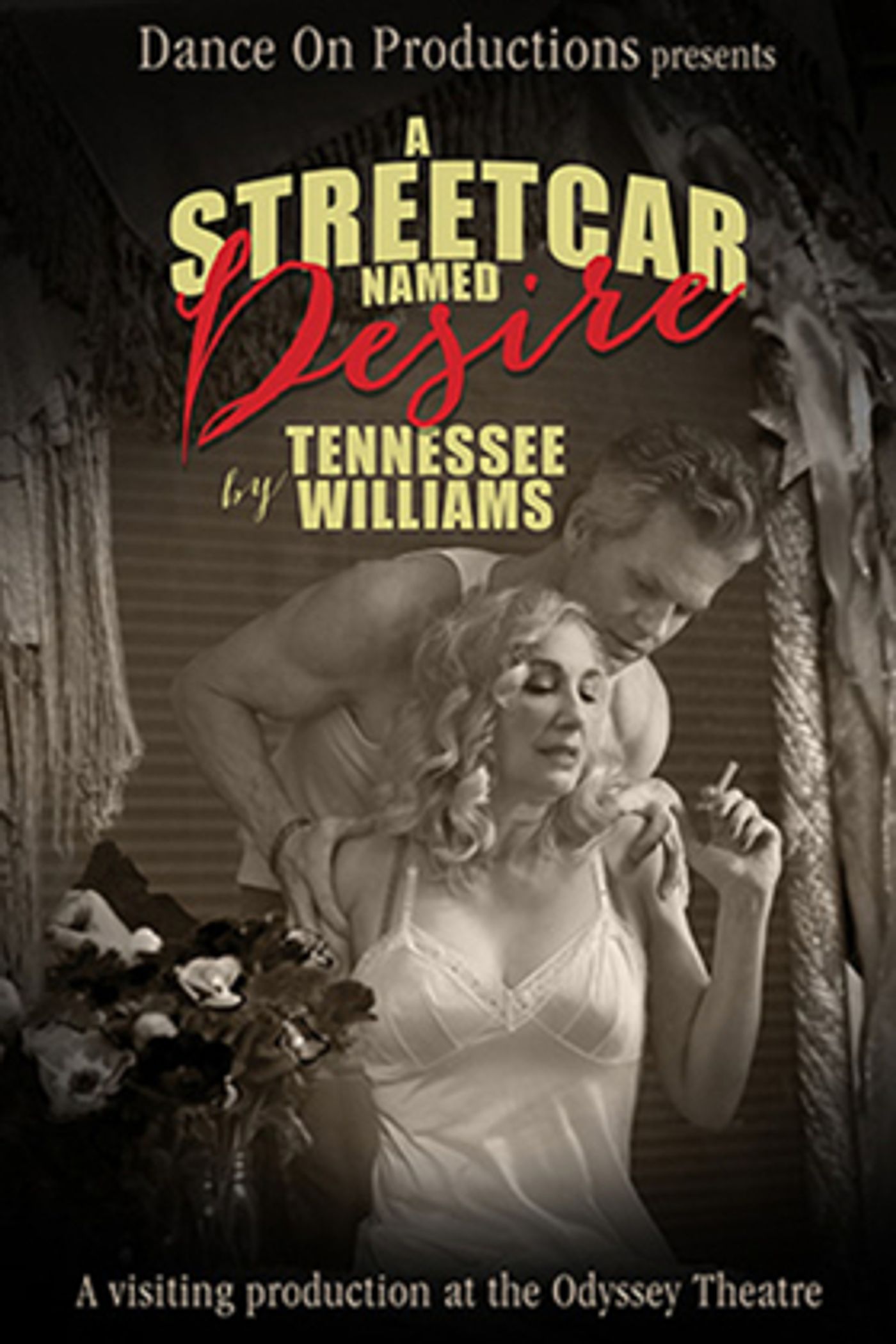
Tennessee Williams' plays have challenged even the best of production teams to create his almost 3-hour stage masterpieces in such a way as to both charm and infuriate its audience at the same time. Most efforts either succeed beautifully or fail miserably, making sitting through a poorly-done production something many will not be willing to do. In fact, if any staging does not grab you during its first act, it is a safe bet the rest of the show will plod along at a pace better to instill sleep. And yet, I am always willing to search out productions in the hope of finding a true gem in the mix.
So I am more than happy to report there is an excellent staging of Williams' Pulitzer Prize-winning masterpiece, A STREETCAR NAMED DESIRE, directed by Jack Heller as a visiting production at the Odyssey Theatre, presented by Dance On Productions in association with Linda Toliver and Gary Guidinger, that will allow you to forget how much time passes due to the skill of its playwright, understanding by its director, the brilliance of its cast, and most importantly, 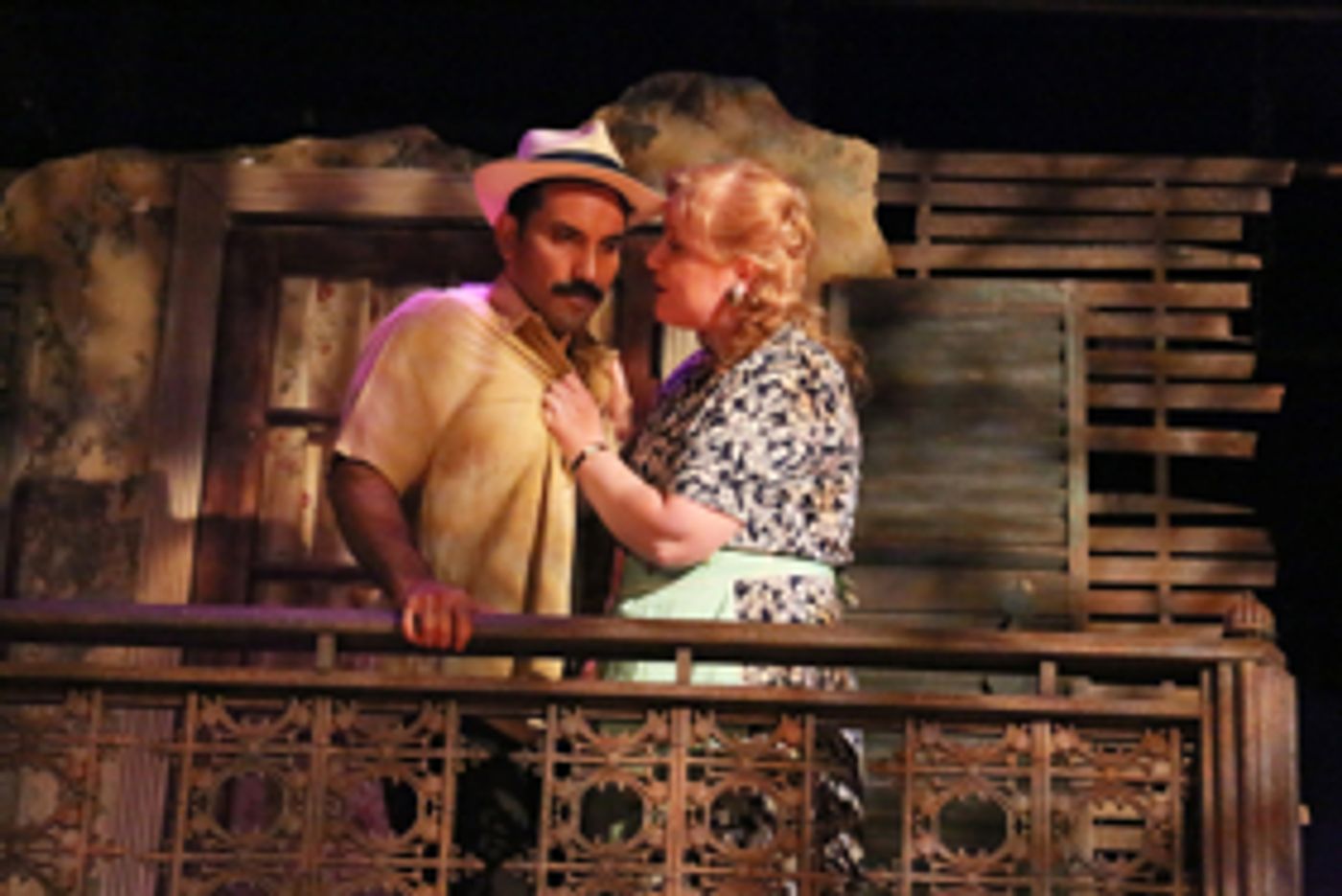 Joel Daavid's incredible multi-level scenic design which fills every possible inch of the stage with not only the two-room Kowalski apartment but also several outdoor spaces including a winding New Orleans-style wrought iron staircase leading up to their neighbor's front-door balcony. And from the moment I walked in and sat down, it was easy to hear all the audience accolades rightly being thrown Daavid's way.
Joel Daavid's incredible multi-level scenic design which fills every possible inch of the stage with not only the two-room Kowalski apartment but also several outdoor spaces including a winding New Orleans-style wrought iron staircase leading up to their neighbor's front-door balcony. And from the moment I walked in and sat down, it was easy to hear all the audience accolades rightly being thrown Daavid's way.
Often regarded as among the finest plays of the 20th century, STREETCAR is considered by many to be Williams' greatest work.  After opening on Broadway in 1947, directed by Elia Kazan, it went on to win the 1948 Pulitzer Prize for Drama, launched the careers of Marlon Brando, Jessica Tandy, Kim Hunter and Karl Malden, and solidified the position of Tennessee Williams as one of the most important young playwrights of his generation. According to Heller, STREETCAR is "about the death of the aristocratic old South and the rise of the working class, with its poverty and brutality - the destruction of one way of life and the ascent of another."
After opening on Broadway in 1947, directed by Elia Kazan, it went on to win the 1948 Pulitzer Prize for Drama, launched the careers of Marlon Brando, Jessica Tandy, Kim Hunter and Karl Malden, and solidified the position of Tennessee Williams as one of the most important young playwrights of his generation. According to Heller, STREETCAR is "about the death of the aristocratic old South and the rise of the working class, with its poverty and brutality - the destruction of one way of life and the ascent of another."
The story famously recounts how the faded and promiscuous Blanche Du Bois is pushed over the edge by Stanley, 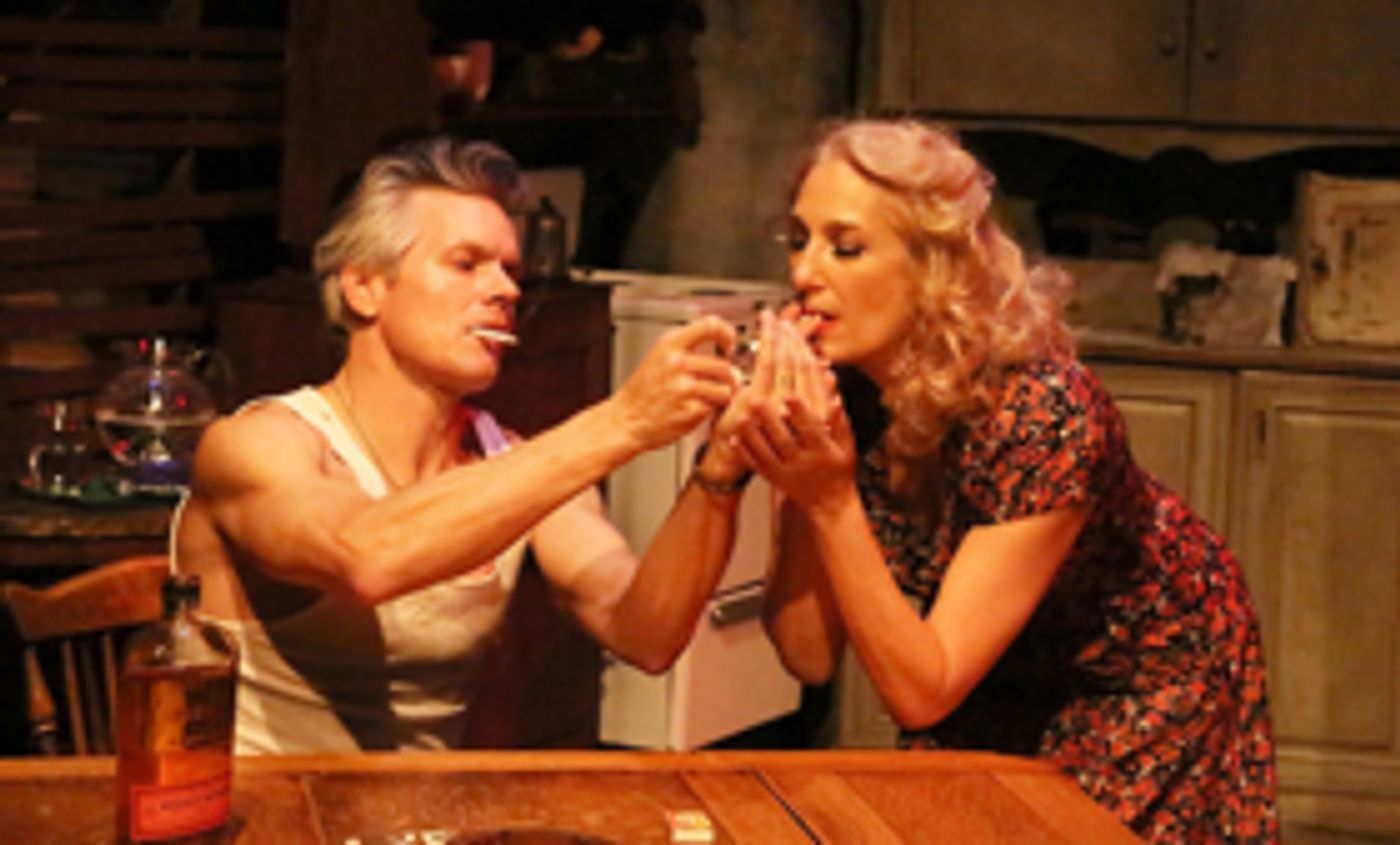 her sexy and brutal brother-in-law, when she overstays her welcome in her sister Stella's crowded New Orleans apartment. Needless to say, casting is always a top priority, with the roles of Blanche, Stanley and Stella of paramount importance to the success of any production. Thankfully, when director Heller saw Susan Priver as down-on-her-luck showgirl Myrtle in Williams' Kingdom of Earth, he "knew right away that she is a 'Williams woman', either his mother or his sister; and Susan is both." And of course, Priver is also brilliantly able
her sexy and brutal brother-in-law, when she overstays her welcome in her sister Stella's crowded New Orleans apartment. Needless to say, casting is always a top priority, with the roles of Blanche, Stanley and Stella of paramount importance to the success of any production. Thankfully, when director Heller saw Susan Priver as down-on-her-luck showgirl Myrtle in Williams' Kingdom of Earth, he "knew right away that she is a 'Williams woman', either his mother or his sister; and Susan is both." And of course, Priver is also brilliantly able  to creative the fragility of the emotional basket case Blanche has become, living in her own fantasy world after the loss of the family's Belle Reve plantation and her scandalous departure from teaching after taking up with a 17-year old student. Her sexual teasing and attempt to hide her colorful past from Mitch, one of Stanley's buddies who has taken a real interest in her as his possible wife, explodes back in her face when he discovers the truth about who Blanche really is, "too dirty" to take home to meet his mother.
to creative the fragility of the emotional basket case Blanche has become, living in her own fantasy world after the loss of the family's Belle Reve plantation and her scandalous departure from teaching after taking up with a 17-year old student. Her sexual teasing and attempt to hide her colorful past from Mitch, one of Stanley's buddies who has taken a real interest in her as his possible wife, explodes back in her face when he discovers the truth about who Blanche really is, "too dirty" to take home to meet his mother.
Of course, the last thing emotionally-fragile Blanche needed to find after her long bus journey to New Orleans was her beloved sister Stella living in an old duplex "on the wrong side of the tracks," married to a man so brutal he thinks nothing of hanging around the steamy place half-naked, 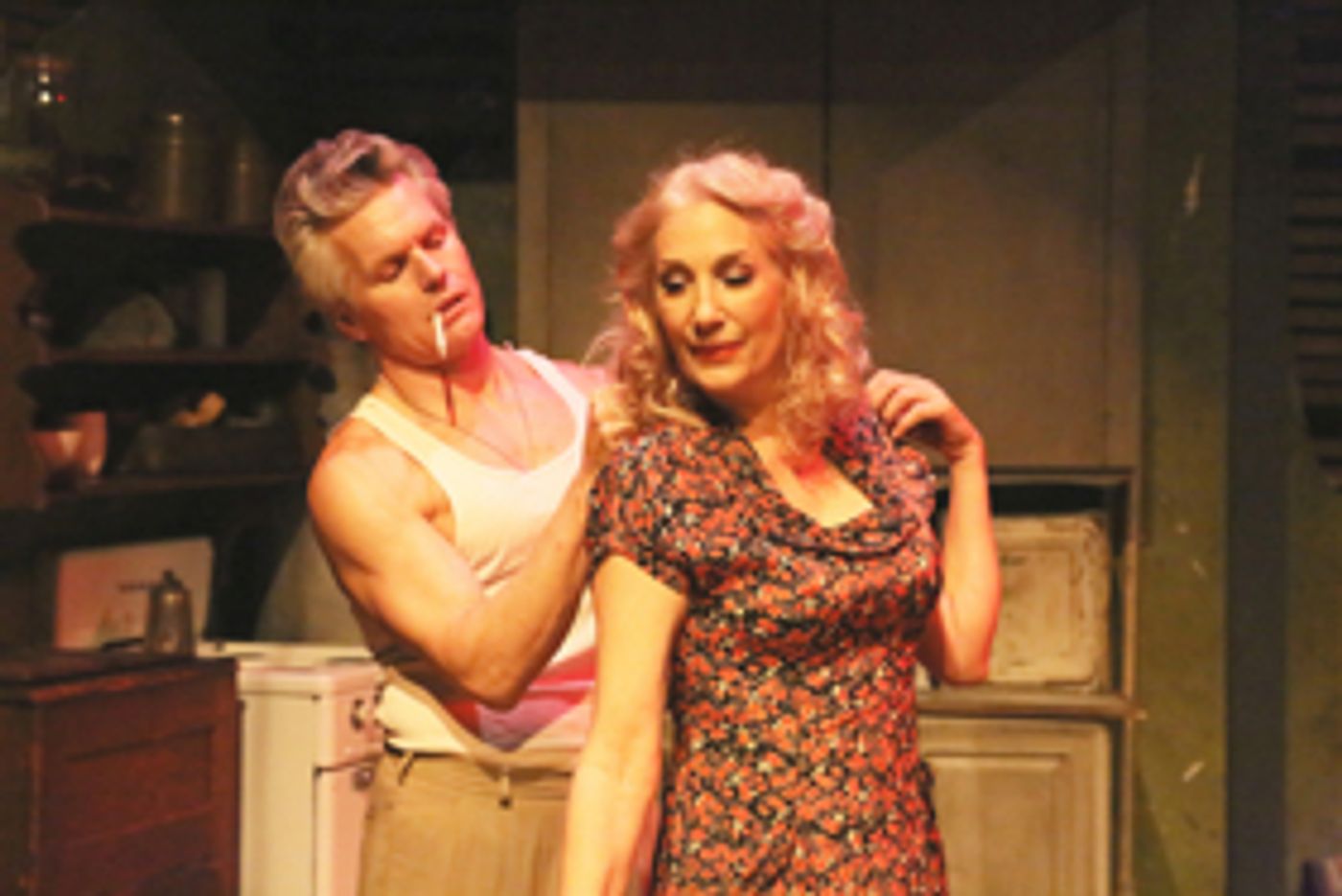 getting drunk while hanging out with the boys after work, either at the bowling alley or taking over the cramped apartment for a rowdy, beer-guzzling poker game, which he knows is no place for women. Stanley, as portrayed with great skill by Max E. Williams, is an earthy testosterone-driven, working class man, secure in his relationship with his pregnant wife Stella knowing how attached she has become to his physical prowess as well as his financial support, even after he smacks her around in front of Blanche and his poker-playing buddies during a drunken rage after losing all night. After his famous calling to "Stella" who has retreated to the neighbors' upstairs apartment with Blanche, his devoted wife descends the winding staircase to resume her place in what Blanche would consider "the hell hole below."
getting drunk while hanging out with the boys after work, either at the bowling alley or taking over the cramped apartment for a rowdy, beer-guzzling poker game, which he knows is no place for women. Stanley, as portrayed with great skill by Max E. Williams, is an earthy testosterone-driven, working class man, secure in his relationship with his pregnant wife Stella knowing how attached she has become to his physical prowess as well as his financial support, even after he smacks her around in front of Blanche and his poker-playing buddies during a drunken rage after losing all night. After his famous calling to "Stella" who has retreated to the neighbors' upstairs apartment with Blanche, his devoted wife descends the winding staircase to resume her place in what Blanche would consider "the hell hole below."
As Stella, Melissa Sullivan waivers between playing the sister, wife, and mother to both of the hurt souls now dominating her very existence. 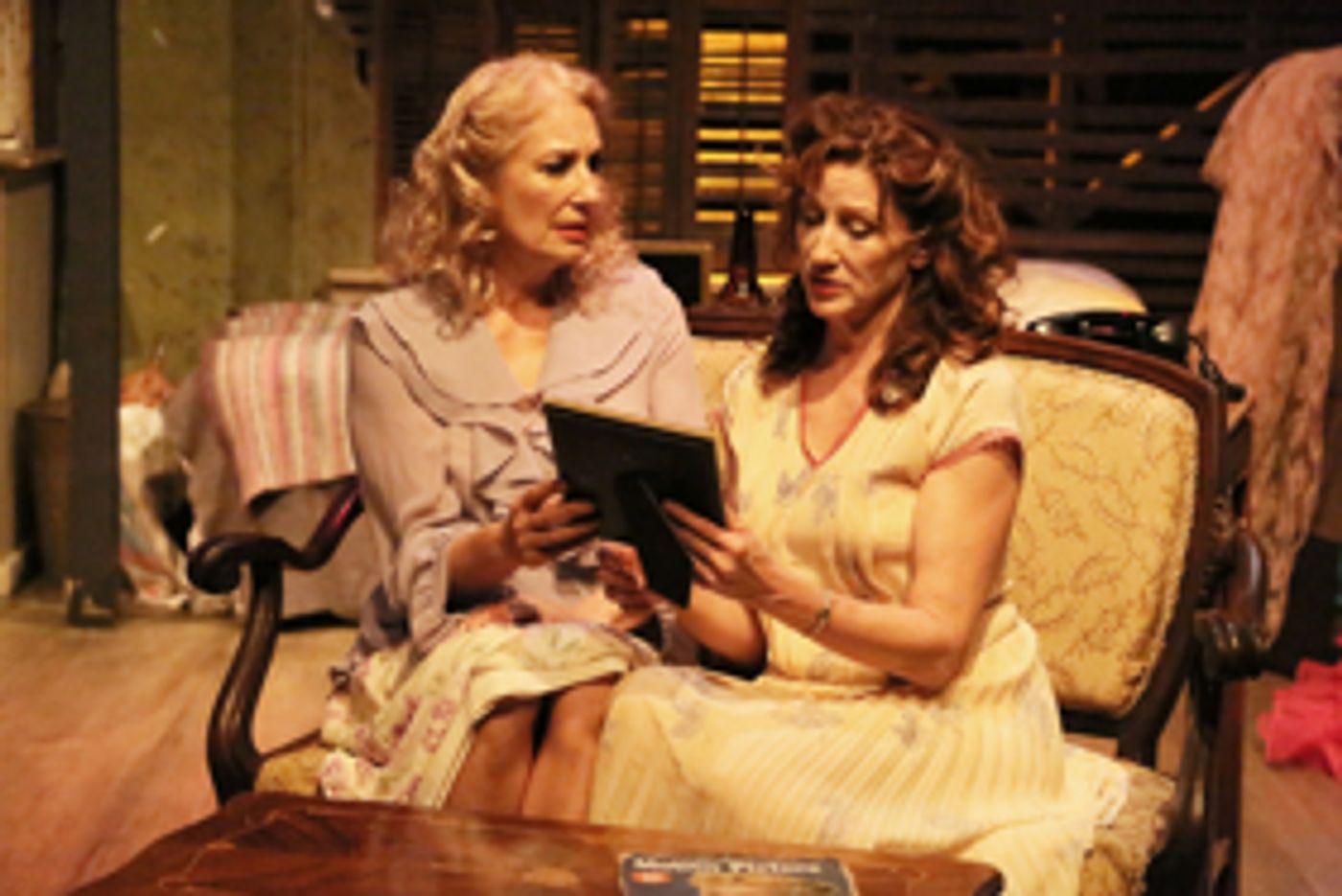 Of course she knows the "real" Blanche who is hidden beneath all the trappings of class and dignity her sister has dragged with her in a trunk to New Orleans, able to allow her over-wrought sister to condemn her "lower class" husband, even while Stella attempts to convince Blanche how happy she is with her lot in life as attached to Stanley as she has become. Stella will never leave him and Blanche cannot tolerate the idea of her sister staying, especially after Stanley seduces her the night Stella is in the hospital giving birth to his child.
Of course she knows the "real" Blanche who is hidden beneath all the trappings of class and dignity her sister has dragged with her in a trunk to New Orleans, able to allow her over-wrought sister to condemn her "lower class" husband, even while Stella attempts to convince Blanche how happy she is with her lot in life as attached to Stanley as she has become. Stella will never leave him and Blanche cannot tolerate the idea of her sister staying, especially after Stanley seduces her the night Stella is in the hospital giving birth to his child.
Williams and Sullivan are remarkable in presenting the many aspects of life between Stanley and Stella in their cramped apartment, 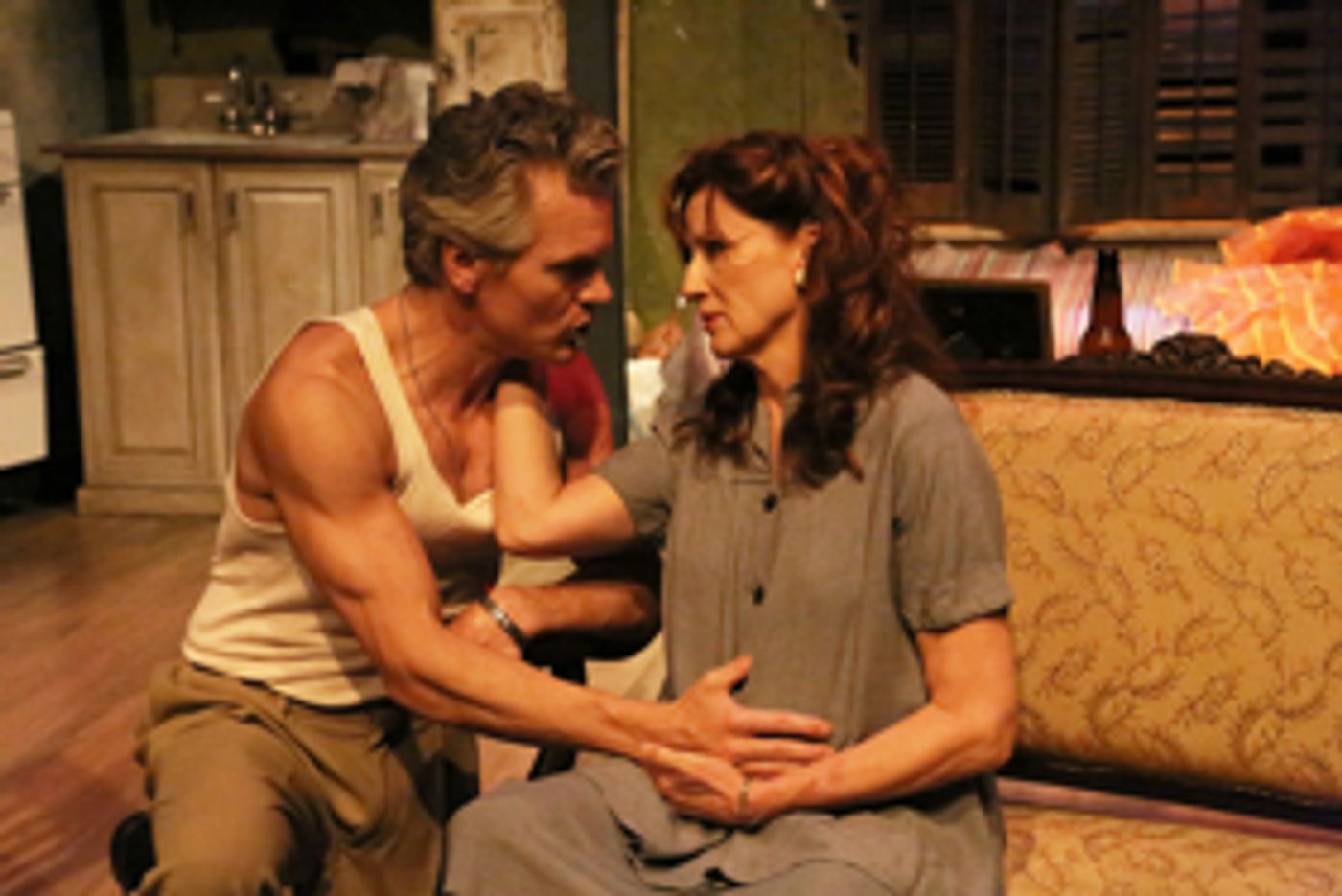 with their intense physical need for each other never wavering, even with their lack of privacy from the upstairs neighbors' eavesdropping. But that is of no consequence to them since the sexual conduct and physical fights from above are easily overheard by them below. It's just the way life is in 1947 New Orleans as men recently returned from WWII attempt to make the best of the lives in working and living conditions many would consider much too "low class" for them. Especially Blanche who still images herself as the Queen of the family's plantation, now lost due to financial ruin following the death of their father and Stella's departure from the responsibilities of assisting in running the place.
with their intense physical need for each other never wavering, even with their lack of privacy from the upstairs neighbors' eavesdropping. But that is of no consequence to them since the sexual conduct and physical fights from above are easily overheard by them below. It's just the way life is in 1947 New Orleans as men recently returned from WWII attempt to make the best of the lives in working and living conditions many would consider much too "low class" for them. Especially Blanche who still images herself as the Queen of the family's plantation, now lost due to financial ruin following the death of their father and Stella's departure from the responsibilities of assisting in running the place.
The rest of the talented supporting cast includes 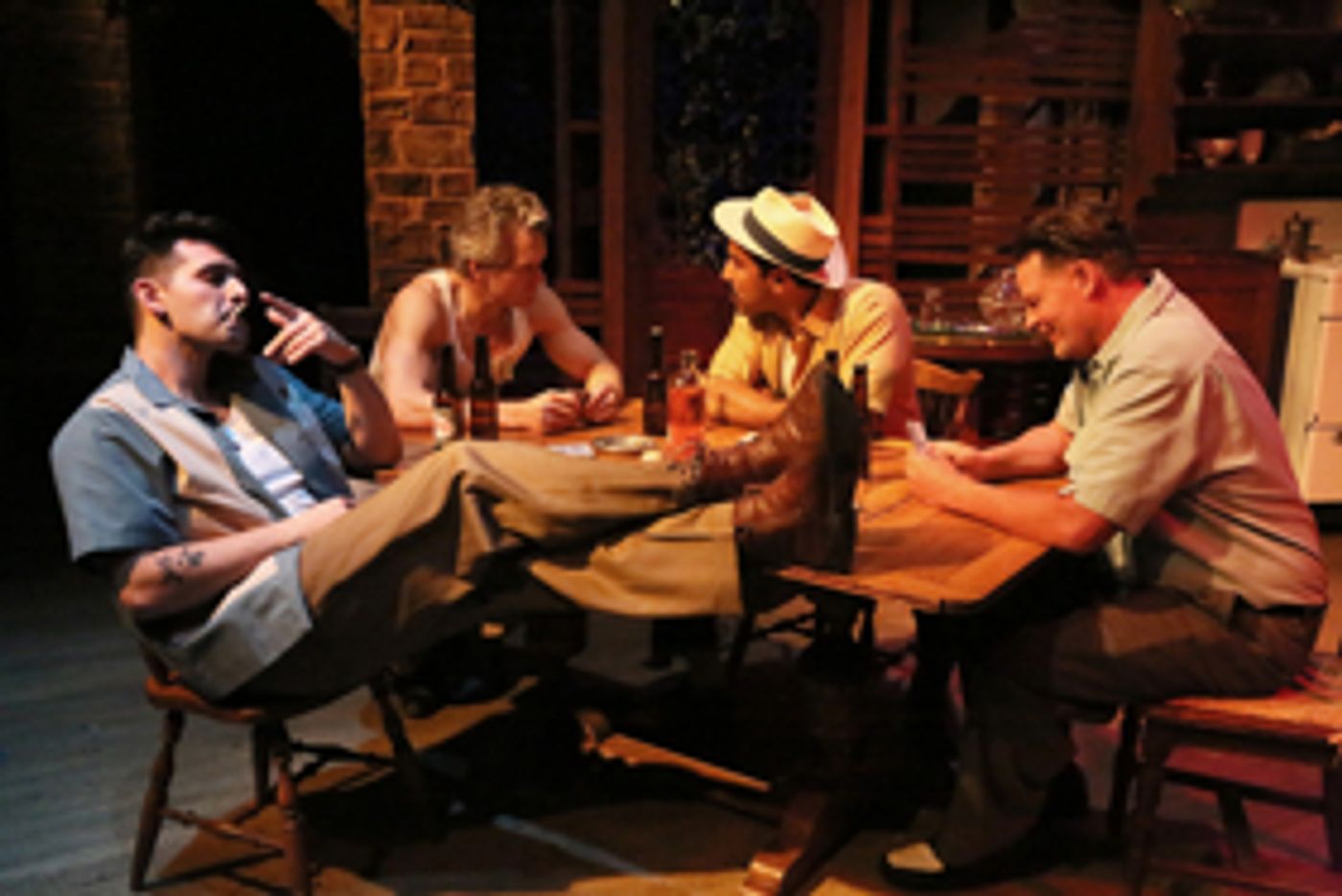 Christopher Parker as Blanche's misguided and rather conservative suitor, Mitch; Caroline Simone O'Brien and Alejandro Bravo as upstairs neighbors Eunice and Steve; Juan Sucre as Stanley's poker buddy, Pablo; Sean Rose (also the production's assistant director) as the teenager collecting for the newspaper who finds Blanche alone at home and becomes her latest sexual target; and Nadejda Klein and Kevin Ragsdale as the nurse and doctor who show up to escort Blanche away to the only place willing to take charge of her.
Christopher Parker as Blanche's misguided and rather conservative suitor, Mitch; Caroline Simone O'Brien and Alejandro Bravo as upstairs neighbors Eunice and Steve; Juan Sucre as Stanley's poker buddy, Pablo; Sean Rose (also the production's assistant director) as the teenager collecting for the newspaper who finds Blanche alone at home and becomes her latest sexual target; and Nadejda Klein and Kevin Ragsdale as the nurse and doctor who show up to escort Blanche away to the only place willing to take charge of her.
Enhancing Joel Daavid's scenic design is the moody lighting design by Derrick McDaniel, sound design by Christopher Moscatiello, earthy and flirty costume design by Shon LeBlanc, with fight choreography by Matt Franta and choreography by Cate Caplin. Kudos to all for their artistic contributions to this noteworthy production.
Performances of A STREETCAR NAMED DESIRE at The Odyssey Theatre, located at 2055 S. Sepulveda Blvd., West Los Angeles, 90025, take place Thursdays, Fridays and Saturdays at 8 p.m. and Sundays at 2 p.m. through July 7, 2019 (dark Thursday, July 4). There will be one additional performance on Wednesday, June 26 at 8 p.m. All reserved seat tickets are $40. For reservations and information, call (310) 477-2055 x 2 or go to OdysseyTheatre.com.
Photos by Michael Lamont
Reader Reviews
Videos

